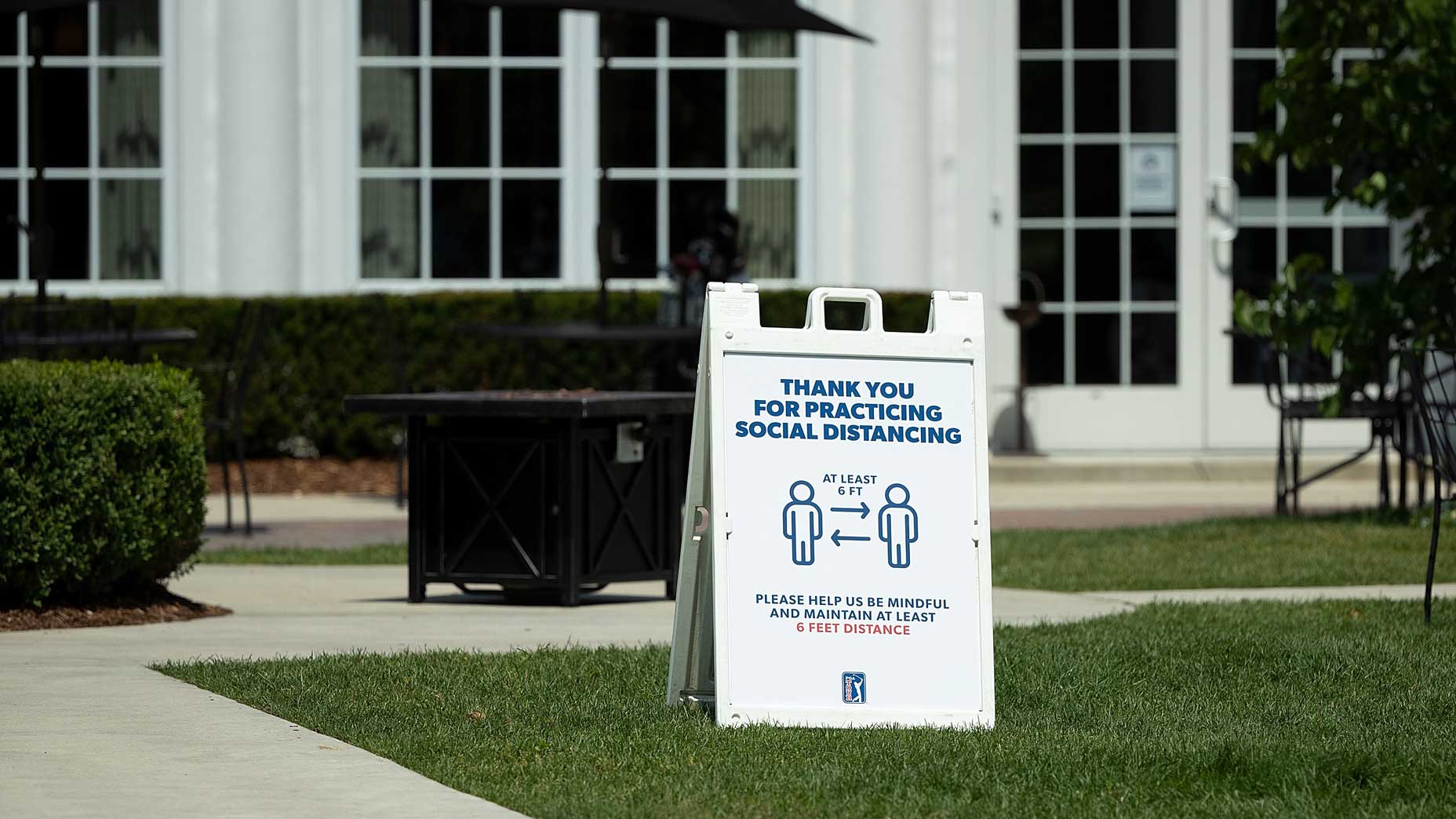DETROIT — In a sports world largely deprived of normalcy, especially in these troubling times, the PGA Tour has found some, even if it’s a bit sticky.
What’s driving it?
Look no further than commissioner Jay Monahan’s words last week: “This has always been about a sustained return.” As the Tour arrives in the Motor City for the Rocket Mortgage Classic, sustenance is a priority.
The first line of defense continues to be the Tour’s protocols, which it deeply trusts and continues to adjust. The Tour has repeatedly updated its Participant Resource Guide that players and caddies are expected to read. It has been altered and resent more than five times in the last month. One of the constant reminders in that guide is that players and caddies are prohibited from eating out at restaurants, regardless of state guidelines. One of the initial positive tests on the Korn Ferry Tour, the Tour believes, likely came from that person being in a bar. So, what has the Tour done since? It has delivered lists of local restaurants offering delivery, take-out or curbside pickup. Last week’s list had 51 options. Take it or leave it!
If this feels like overbearing parenting, well, that’s probably the point. Players have constantly been asked to hold themselves accountable. One week after the Tour issued players a “wake-up call” memo, it officially announced a partnership with Healthy Roster, a communication and health-tracking system that players have been using for weeks. It’s at least the second Tour-health technology partnership to stem from the fight against the coronavirus. Between that and cautionary WD’s, it feels like a truly banded effort to sustain tournaments, as well as keep sponsorship and TV dollars rolling in and paychecks going out.
Also bolstering the sense of normalcy is pro golf’s intense competitiveness. When Webb Simpson WD’d from the Travelers out of an abundance of caution, alternate Tyler McCumber jumped on a commercial plane in Jacksonville, received his negative test and shot 65 in Connecticut, all in a span of 24 hours. Sadly, he still missed the cut, but mid-level players like McCumber are starved for starts, which explains why he’s back in the field this week. Same thing next week. The Tour doesn’t want positive tests, obviously, and it wants the best players in the world to continue playing, obviously, but there are many more McCumbers out there waiting for their chance at unchanged (and juicy) purse sizes. If you host it, they will come.
While the increase in positive tests undoubtedly has been alarming, given the Tour’s resolve to sustain its return, the withdrawals this week felt less surprising, if not somewhat normal. On Sunday, Dylan Frittelli became the fourth Tour player to test positive. On Monday, Harris English became the fifth, and on Tuesday, it was first-alternate Chad Campbell as the sixth. Three players competing on the Korn Ferry Tour in Colorado also tested positive.
Barring a spike in positive tests, next week’s WD’s will feel even more normal. That much was clear when Monahan danced around various questions about the number of cases that would trigger the Tour to shut down. Surely, there’s a tipping point, but it doesn’t feel like we’re close to it yet. And when those players who tested positive eventually return, the Tour will feel even more normal. This is not meant to belittle the serious spread of a serious disease, which is now infecting up to 40,000 Americans per day. It is simply a reminder of one of the Tour’s tenets right now: sustenance.
As long as things are, well, okay, the show will go on.
Further evidence of normalcy is the strength of field at the Rocket Mortgage event. After the first three tournaments brimmed with top-tier talent, only five top-20 players are teeing it up in Detroit. This year’s field rating nearly mimics the 2019 Rocket Mortgage, and for the sake of professional golf’s equilibrium, this is a good thing.
The world’s best players rushed back to play at the Charles Schwab Challenge, leaving many veterans on the outside looking in. Luke List, for example — who finished 92nd in the FedEx Cup last season — was an alternate for the Fort Worth event, where historically he would have been comfortably in the field. Same goes for Kyle Stanley, a multiple-time Tour winner who had to wait for the RBC Heritage for his return to golf.
The coronavirus shutdown had thrown the Tour’s supply and demand out of sync. So there was List, instead competing on the Korn Ferry Tour and, fittingly, winning the event at TPC Sawgrass. (For next week’s Workday Charity Open, List is 61 places inside the alternate cutoff. More normalcy.)
It’s worth remembering another one of the Tour’s core intentions: creating playing opportunities. When the John Deere Classic was cancelled, the Tour launched a new event, the Workday, and leaned hard on the folks at the Memorial Tournament to conduct the event at Muirfield Village. And that Korn Ferry event that List won? That, too, was created out of thin air by the Tour. Pro golfers, after all, operate like small businesses, and if we’ve learned anything thus far in this odd stretch of events, it’s that most of those small businesses will play on.
How long will the ecosystem allow them to? Indefinitely, the Tour hopes.
